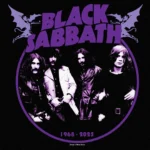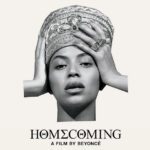Charity singles have become part of the UK’s cultural landscape. They unite artists to raise money and awareness in times of crisis. From the seismic impact of Band Aid in 1984 to more recent efforts responding to mental health, national tragedies, and global emergencies, these songs show how music and social conscience can intersect, and how the public responds to the cause.
Do They Know It’s Christmas? (1984)
The spark that started it all
On 3 December 1984, Band Aid’s Do They Know It’s Christmas? exploded onto the UK music scene. Written by Bob Geldof and Midge Ure and recorded in just 24 hours, the single debuted at number one on the Official UK Singles Chart. It remained there for five weeks and became the fastest-selling single at the time, moving over one million copies in its first week. By the end of 1984, it had sold more than three million UK copies; by 2017, the total stood at 3.8 million. Globally, sales surpassed 11.7 million by 1989. The campaign raised approximately £8 million for famine relief in Ethiopia, cementing its place in musical and charitable history.
We Are The World (1985)
Transatlantic solidarity
Though an American initiative under USA for Africa, the single topped UK charts in April 1985. Written by Michael Jackson and Lionel Richie, it included artists such as Bruce Springsteen, Stevie Wonder, Cyndi Lauper, and Diana Ross. Its success at home and abroad highlighted the growing global impact of charity singles.
Let It Be (Ferry Aid, 1987)
Responding to disaster
After the Zeebrugge ferry tragedy in 1987, Ferry Aid released a heartfelt cover of Let It Be. The collaboration featured Paul McCartney, Boy George, Kate Bush, Kim Wilde, and others. It hit number one in the UK, raising critical funds for survivors and bereaved families, showing the format’s ability to respond to national emergencies.
Perfect Day (1997)
Community and charity
In November 1997, various artists assembled to record Lou Reed’s Perfect Day for BBC Children in Need. The single hit number one in the UK for three weeks, raising about £2.1 million and selling around 1.55 million copies. The release showed that charity singles could support ongoing causes, not just immediate disasters.
Band Aid 20 & 30 (2004, 2014)
Anniversary reboots
Band Aid reassembled twice for humanitarian causes. In 2004’s Band Aid 20, artists including Coldplay, Dido, Dizzee Rascal, Robbie Williams and others re-recorded Do They Know It’s Christmas? The single again topped the UK chart and raised around 1.8 million copies sold . In 2014’s Band Aid 30, to raise funds for the Ebola epidemic, artists including Sam Smith, Ed Sheeran, Ellie Goulding and Chris Martin continued the tradition by again reaching number one in the UK.
Everybody Hurts (2010)
Media-led aid
Following the devastating Haiti earthquake, Simon Cowell and The Sun organized Everybody Hurts, with Leona Lewis, Rod Stewart, Susan Boyle, Take That and others. The single sold over £1 million worth of copies and charted highly in the UK, showing how mainstream media can mobilise charitable campaigns effectively.
Bridge Over Troubled Water (Artists for Grenfell, 2017)
Modern tragedy, new voices
In June 2017, following the Grenfell Tower tragedy, more than 50 artists gathered to record a powerful version of Bridge Over Troubled Water. Featuring Stormzy, Rita Ora, Robbie Williams, to name a few, the single shot to number one on the UK chart within two days, selling 120,000 copies in its first day and over 170,000 overall. It was certified gold by the BPI in 2020.
Times Like These (Radio 1, 2020)
Pandemic response
During the first COVID-19 lockdown, BBC Radio 1 organised a remote cover of the Foo Fighters’ Times Like These, featuring Dua Lipa, AJ Tracey, Biffy Clyro and others. The single topped the UK charts, proving that digital collaboration can still capture mass attention and raise funds during unique crises.
And finally…
Charity singles once dominated the cultural conversation. Changing music habits and consumption have shifted their power, but the instinct remains. In times of crisis, musicians still rally. Platforms change, but the impulse to use music for good causes does not.




